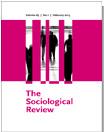
Publication Date:
March 2016
Sociological Review, Vol. 64 issue 2, pp. 79-97
Abstract:
Despite the growing interest in transnational fields and their influence on national-level dynamics, existing literature has not yet addressed the processes involved in creating such fields in the first place. This article provides insight into the complexities involved in national-transnational interactions amidst national and transnational field formation. It examines the nascent transnational humanitarian field of the late nineteenth-century through the work of the emerging Red Cross Movement in the 1860s-1890s, drawing primarily on the archive of the International Committee of the Red Cross. The findings show that National Red Cross (NRC) societies employed a discourse drawn from a transnational cultural arena in order to gain central positioning in their national fields and to convince other parties of their necessity. Conversely, NRCs used nationalism as a form of symbolic capital in establishing themselves in their national fields, seemingly at odds with their cosmopolitan aspirations. Thus, by contrast to the ideal-typical representation of global humanitarianism as non-national, these findings suggest that nationalism and impartial humanitarianism are historically intertwined. More broadly, the article argues that national-level field dynamics as well as nationalism play important roles in the creation of transnational fields, even when field actors present themselves as acting for universal causes.